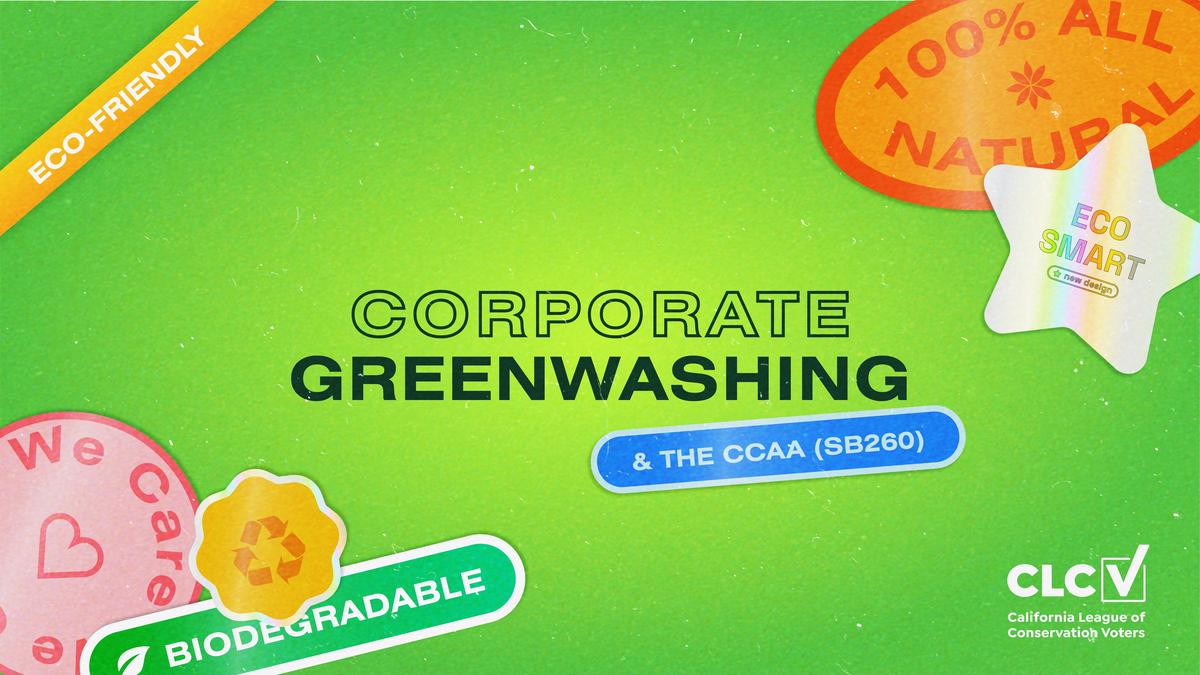
“Greenwashing” describes the phenomenon of companies advertising their products as “environmentally friendly” in an effort to attract demand and distract from environmentally harmful practices. Environmentalist Jay Westerveld coined the term “greenwash” in a 1986 essay.
Greenwashing leads corporations to deliberately misrepresent their environmental impact, allowing them to evade responsibility for their actions and dodge public criticism. When firms are not appropriately held accountable, they can continue their damaging practices and exacerbate social and environmental problems. On the flip side, corporate greenwashing creates skepticism among consumers, leading individuals to mistrust all products and services claiming to be environmentally friendly — even those legitimately produced with sustainable methods.
A significant portion of mainstream corporate messaging contains greenwash. Chevron, for example, despite violating the Clean Air Act and spilling oil and toxic water into wildlife refuges, launched the “People Do” ad campaign in the late 1980s to mask their negative environmental record with imagery of Chevron employees and initiatives protecting animals. In 2010, they returned with the “We Agree” campaign in an attempt to heal their image and avoid paying an $18 billion lawsuit over damage caused by their oil fields in Ecuador. Greenwashing often manifests itself as shallow, image-conscious attempts at corporate social responsibility.
1988 Chevron “People Do” TV Commercial
Common greenwashing buzzwords include “green”, “sustainable”, “all-natural”, “organic”, “non-toxic”, “eco-friendly”, and “biodegradable”. Contrary to many consumer notions, the majority of these terms can be used without meeting any defined qualifications. As a result, greenwashing attempts often feature claims to sustainability without any evidence to back up their assertions. Companies also tend to emphasize one small “eco-friendly” aspect of their product, even when the rest of their product or process is not environmentally-friendly. In fact, many firms deliberately conceal details concerning their production processes, emissions, and overall environmental impact.
The Climate Corporate Accountability Act (SB260) seeks to change this. SB 260 would be the first law in the country to require U.S.-based companies — those doing business in California and generating over $1 billion in gross annual revenue — to disclose all of their greenhouse gas emissions and set science-based targets to reduce those emissions. The CCAA will hold corporations accountable for their emissions, significantly reduce greenhouse gas emissions in the near- and long-term, and help California stay a national leader in the fight against climate change.
Under the CCAA, Companies will make public:
- Direct emissions, including fuel combustion
- Their emissions from purchasing and using electricity
- Indirect emissions stemming from a number of sources, mainly a corporation’s supply chain
- SB 260 gives companies until 2025 to begin setting their emissions reduction targets.
The Climate Corporate Accountability Act represents a vital component of the larger effort to eliminate greenwashing, hold companies accountable for their actions, and restore consumer confidence.


